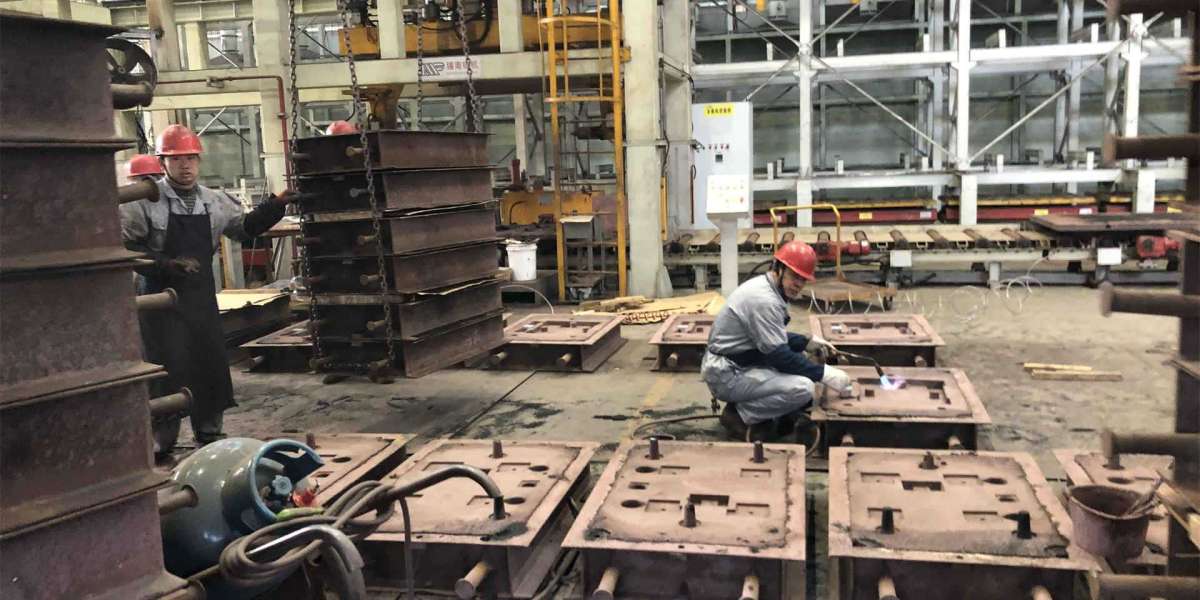Commercial building finance is a critical tool for those looking to develop or invest in commercial real estate. Whether you're building from the ground up or refinancing an existing property, understanding the financing options and processes available is essential. This guide explores what commercial building finance is, the various types of loans available, and how to qualify and apply for funding.
Why Do You Need Commercial Building Finance?
If you're considering embarking on a commercial property project, commercial building finance is your stepping stone. This type of financing helps developers and business owners secure the funds necessary to purchase, build, or renovate commercial properties. It can also be used for expanding an existing commercial venture.
Growth and Development of Commercial Projects
Commercial properties contribute to urban growth by adding essential infrastructure to communities. Without proper financing, many large-scale projects would be unattainable, limiting potential growth and development in an area.
Boosting Business Potential with Proper Financing
For businesses, having access to commercial building finance can elevate their operational capacity. A well-financed commercial property allows for growth in terms of both physical space and the ability to accommodate more employees or clients.
Types of Commercial Building Finance Options
When it comes to financing commercial real estate, there are a variety of options available, depending on your business needs and financial situation.
Traditional Bank Loans
Traditional bank loans are among the most common ways to secure financing for commercial buildings. These loans usually come with competitive interest rates, but they require a strong credit history, a significant down payment, and solid financial standing.
SBA Loans for Commercial Real Estate
The U.S. Small Business Administration (SBA) offers loan programs designed to help small businesses secure financing for commercial properties. SBA loans typically come with lower down payment requirements and longer repayment terms, making them an attractive option for many.
Private Lenders and Alternative Financing
Private lenders offer an alternative for those who may not meet the strict requirements of traditional banks. While private loans can have higher interest rates, they often come with more flexibility in terms of loan structure.
Commercial Mortgages
A commercial mortgage is a loan specifically for purchasing commercial property. It is typically secured by the property itself, meaning that the lender can take possession of the property if you fail to repay the loan.
Key Benefits of Commercial Building Finance
There are several advantages to securing commercial building finance, especially for businesses and real estate investors.
Higher Loan Amounts
Unlike residential loans, commercial building finance often allows for larger loan amounts, making it possible to fund large projects or purchase significant properties.
Flexibility in Loan Terms
Commercial loans tend to offer more flexible repayment terms, allowing you to adjust according to the specific needs of your project.
Tax Benefits
Commercial property owners can benefit from tax deductions on property depreciation and interest payments, which can significantly reduce taxable income.

Qualifying for Commercial Building Finance
Getting approved for commercial building finance requires meeting certain criteria. Here are some of the most important factors that lenders look at:
Credit Score Requirements
Your credit score plays a critical role in determining whether you will qualify for a commercial building loan. Most lenders look for a strong credit history to reduce the risk of default.
Down Payment Expectations
Most commercial loans require a down payment of 20-30% of the property value. This helps to show the lender that you are financially invested in the project.
Cash Flow and Debt-Service Coverage Ratio (DSCR)
Lenders also evaluate your business's cash flow to ensure that you can cover the loan payments. A debt-service coverage ratio (DSCR) of 1.25 or higher is typically required.
How to Apply for Commercial Building Finance
Understanding the application process can streamline the entire process and help you secure the financing you need more efficiently.
Pre-Application Process
Before you apply, make sure to have all necessary documents ready, including your business financial statements, tax returns, and a detailed business plan. It’s also helpful to consult with a financial advisor or mortgage broker to determine the best type of loan for your needs.
The Application Process
The application process for commercial building finance can take several weeks. You’ll need to fill out an application form and submit all required documentation. The lender will then assess your eligibility and determine whether or not to approve the loan.
Required Documentation
Typical documentation includes:
- Business financial statements
- Proof of income and assets
- Credit history
- Project details (if applicable)
- Personal guarantees

Factors to Consider When Choosing a Lender for Commercial Building Finance
Selecting the right lender is just as important as choosing the right financing option.
Interest Rates and Terms
Always compare interest rates and loan terms from various lenders. Even a small difference in interest rates can make a significant impact on the overall cost of the loan.
Lender’s Reputation and Expertise
Research lenders with experience in commercial real estate financing. They should have a proven track record of successful deals and a deep understanding of the market.
Customer Service and Support
A lender that offers good customer service can make the process smoother and more transparent, helping you avoid potential issues down the road.
Common Pitfalls in Commercial Building Finance
Avoid these common mistakes to ensure your commercial financing venture is successful.
Underestimating Costs
Failing to budget for unforeseen expenses can lead to cash flow problems during construction or renovation.
Mismanagement of Cash Flow
Be sure to monitor cash flow regularly to avoid running into financial troubles when repayments begin.
Overleveraging
Taking on too much debt can put your commercial venture at risk. Be cautious of borrowing more than you can comfortably repay.
Commercial Building Finance for Investors
For real estate investors, commercial building finance offers the opportunity to expand portfolios and generate income.
Financing Options for Real Estate Investors
Real estate investors typically use commercial building finance to purchase properties, which they then rent out or sell at a profit. Various financing options, like bridge loans and hard money loans, can offer flexibility for investors.
Risks and Rewards of Investing in Commercial Real Estate
Investing in commercial real estate can yield significant rewards, but it’s not without risks. Market fluctuations, tenant vacancies, and rising operational costs can pose challenges.
How to Maximize ROI with Commercial Finance
Investors can maximize their return on investment (ROI) by carefully selecting properties in high-demand areas, keeping operational costs low, and maintaining a good relationship with tenants.
The Role of Commercial Building Finance in Urban Development
Commercial building finance plays a vital role in shaping the future of urban spaces.
Impact on Infrastructure and Local Economies
When large-scale commercial properties are developed, they often result in better infrastructure, such as roads and public transportation, which benefits the entire community.
Creating Jobs and Economic Growth
Commercial projects create jobs in construction, retail, hospitality, and other sectors, contributing to the economic development of an area.
The Future of Commercial Building Finance
With the constant evolution of technology and the global economy, the future of commercial building finance looks promising.
Technological Advances in Financing
FinTech innovations are making it easier to apply for and manage commercial building loans. Digital platforms offer faster application processing and approval.
Trends to Watch for in 2024 and Beyond
As the demand for sustainable buildings rises, financing for eco-friendly projects is expected to increase. Keep an eye on green financing options and incentives.
Conclusion
Commercial building finance is an essential tool for anyone looking to develop or invest in commercial real estate. Whether you’re a business owner or a real estate investor, understanding your financing options and the application process will set you on the path to success. By carefully choosing the right lender and loan type, you can ensure your project’s financial foundation is strong and secure.








